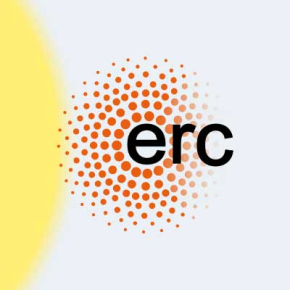The winners of 2025 ERC Starting Grants from the CNRS
The European Research Council (ERC) has just announced the winners of its 'Starting' grants which provide substantial funding for projects involving young researchers. The CNRS is the host institution for 18 grant-winning projects.
In 2025, the European Research Council (ERC) selected 478 scientists in Europe to be awarded a 'Starting' grant worth a total of €761 million from the Horizon Europe framework programme. The Council received 3928 applications which means there was a success rate of 12%.
The aim of this funding, with its total budget of €1.5 million1 , is to support exploratory research projects that last a maximum of 5 years. These grants are for scientists who obtained their PhD between 2 and 7 years ago. 'Starting' grants are the first type of European financing for young researchers and come before 'Consolidator' grants (up to €2 million, between 7 and 12 years after the PhD) and 'Advanced' grants (up to €2.5 million, for established researchers).
This year, 42% of the grants were awarded to female researchers. The number of women grantees remain fairly stable regarding 2023 (43 %) and 2024 (44 %). The grant-winners come from 25 European countries including Germany (99 projects), the United Kingdom (60), the Netherlands (44) and France (41).
A situation that brings joy to Ekaterina Zaharieva, European Commissioner for Startups, Research and Innovation : ‘Among the winners in this new round of EU funding are researchers of 51 nationalities. They will be advancing knowledge across a wide range of scientific fields, including cancer, mental health and quantum science. We see leading scientists coming to Europe with these new grants, and many choosing to remain here thanks to this support. This demonstrates Europe’s potential to attract and keep top scientific talent.’
In 2025, 18 grant-winners are hosted by the CNRS :
- Alejandro ALVAREZ LAGUNA, from Laboratoire de physique des plasmas (CNRS/École polytechnique/Sorbonne Université), for the HiMomPlas “High-order moment models and multi-scale numerical methods for plasmas applied to electric propulsion” project
- Lucile ANTHORE-DALION, from Nanosciences et innovation pour les matériaux, la biomédecine et l'énergie (CNRS/CEA) laboratory, for the DECAF “Carboxylic Esters as Bifunctional Reagents in Decarboxylative Cross-Coupling Reactions and Alkene Functionalizations” project
- Alexandre ASSOULINE, from Institut Néel (CNRS), for the ANYONBOX “Anyon box in bilayer graphene” project
- Meryem BAGHDADI, from Institut Necker Enfants Malades - Centre de Recherche (CNRS/Inserm/Université Paris Cité), for the ENCODE “Mechanical regulation of the intestinal stem cell niche in development and disease” project
- Pedro BARACAL DE MECE, from Institut Langevin (CNRS/ESPCI Paris), for the MIRACLE-AD “Multi-modal Imaging for Retinal Analysis at Cellular Levels in Early Alzheimer’s Disease” project
- Joëlle BARIDO-SOTTANI, from Institut de biologie de l'École normale supérieure (CNRS/ENS-PSL/Inserm), for the MORPHOFBD “Using morphological information to accurately date phylogenies and understand past diversification dynamics” project
- Charles BERTUCCI, from Centre de recherche en mathématiques de la décision (CNRS/Université Université Paris-Dauphine PSL), for the PaDiESeM “Partial Differential Equations on Sets of Measures” project
- Charlène BOUMENDIL, from Institut de génétique humaine (CNRS/Université de Montpellier), for the NCOre “Nuclear pores and chromatin organization: a crosstalk?” project
- Sandrine CODIS, from Astrophysique, instrumentation, modélisation (CNRS/CEA/Université Paris Cité) laboratory, for the COLIBRI “Cosmic nOn-Linearities: Impact of BaRyons on cosmological Inference with modern galaxy surveys” project
- Grégoire DAVID, from Institut des sciences chimiques de Rennes (CNRS/ENSC Rennes/Université de Rennes), for the BRUNCH “Broken symmetries in relativistic quantum chemistry” project
- Alexandros ESKENAZIS, from Institut de mathématiques de Jussieu - Paris Rive Gauche (CNRS/Sorbonne Université/Université Paris Cité), for the DiAnQuGe “Discrete Analysis and Quantitative Geometry »
- Axelle FERRIERE, from Sciences économiques - Sciences Po (CNRS/Sciences Po Paris) laboratory, for the RETTHINQ “Rethinking the Efficiency-Redistribution Trade-Off: Taxes, Transfers, and Household Inequality” project
- Carolina GIORGETTI, from Laboratoire de géologie de l'École normale supérieure (CNRS/ENS-PSL), for the MEMENTO “Monitoring Earthquake Mechanics under Evolving Natural TectOnic stress” project
- Renyou HOU, from Laboratoire interdisciplinaire solidarités, sociétés, territoires (CNRS/Université de Toulouse Jean Jaurès), for the DOUMOTHERCHINA “From Double Motherhood to Surrogacy. Anthropology of Kinship, Gender and Globalization in Contemporary Urban China” project
- Ludovic KEISER, from Institut de physique de Nice (CNRS/Université Côte d’Azur), for the EMBIOMO “Unraveling Multiscale Embolism Dynamics in Plant Leaves through Biomimetic Models »
- Lauren REYNOLDS, from Plasticité du cerveau (CNRS/ESPCI Paris-PSL) laboratory, for the XXX project
- François ROUSSET, from Centre international de recherche en infectiologie (CNRS/ENS de Lyon/Inserm/Université Claude Bernard), for the CODA “Conservation of defense and anti-defense mechanisms across the tree of life” project
- James UTTERBACK, from Institut des nanosciences de Paris (CNRS/Sorbonne Université), for the InSituDynamics “Energy Carrier Transport in Nanocrystal Optoelectronics Under Relevant In Situ Conditions” project
- 1Additional funding may be provided under special conditions.
